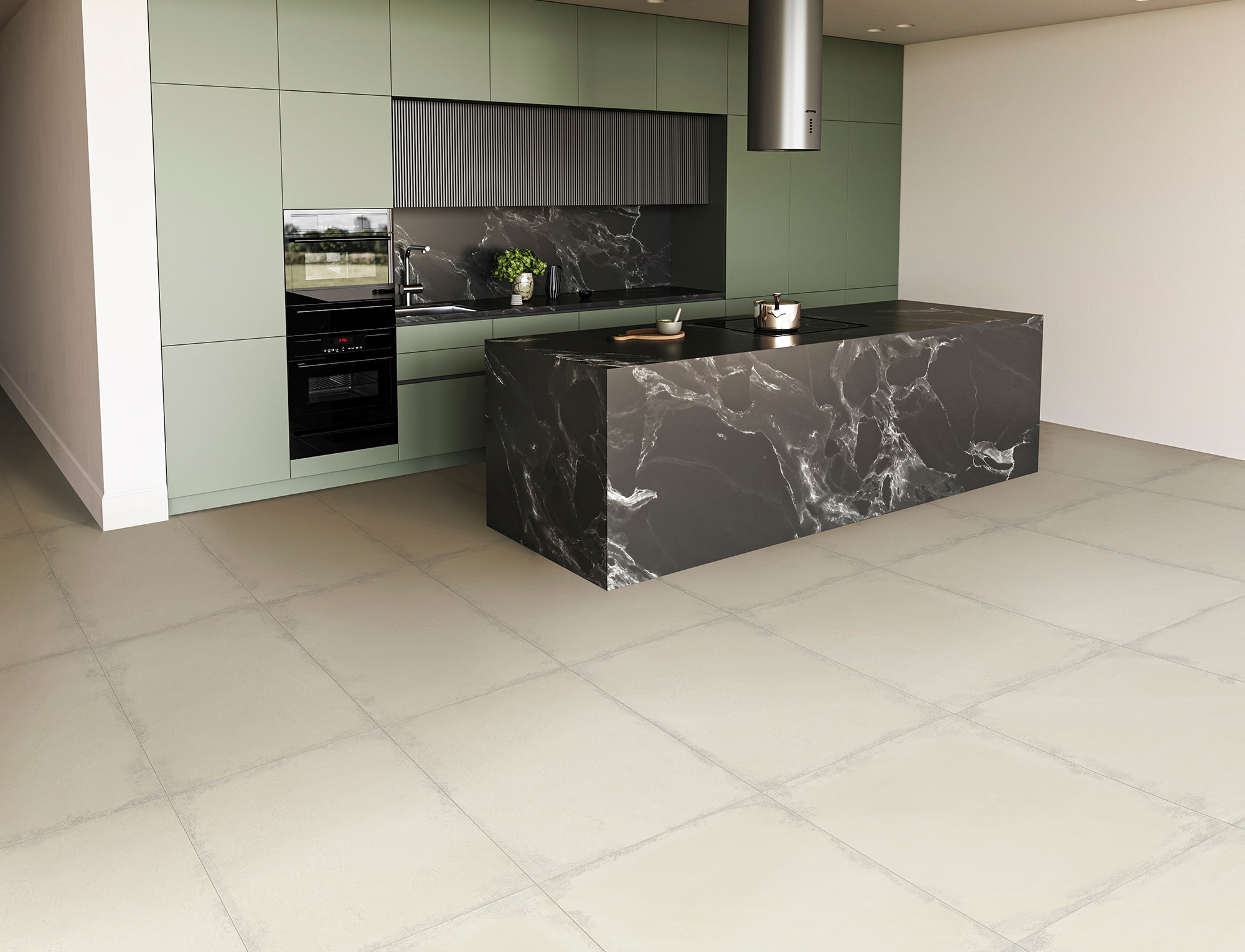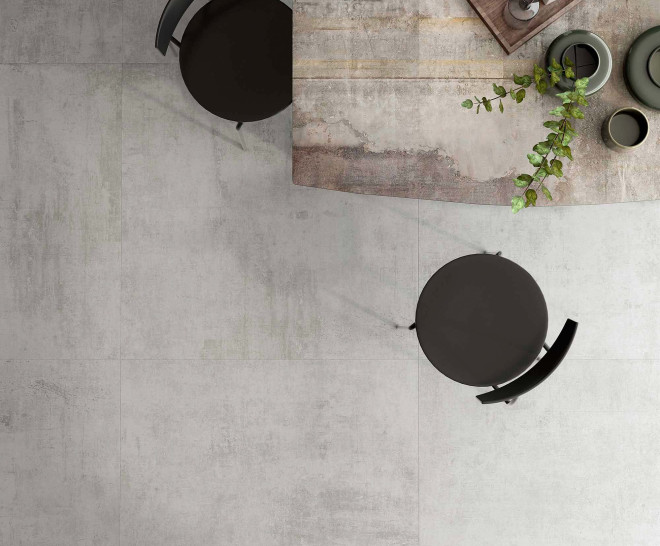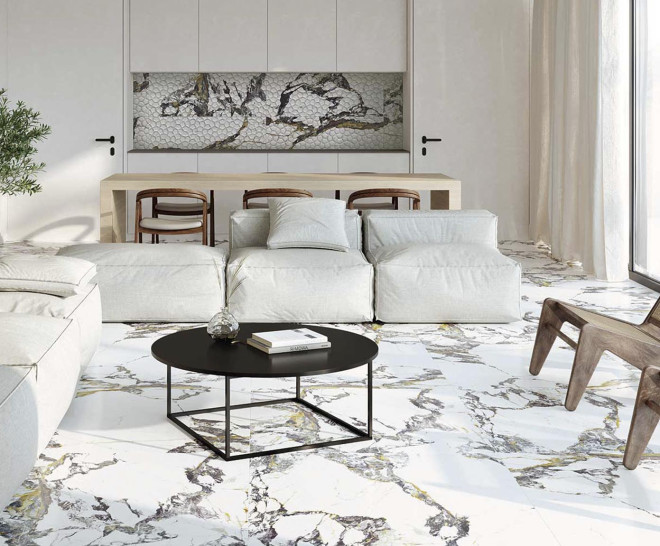However, you should bear in mind that selecting the right material is only the beginning. Regardless of the material you choose, there are different types of finishes whose characteristics depend on both the project and the room in which they are installed. And finally, you should bear in mind that one of the great advantages of stoneware over other materials is its ability to adapt to any project, so choosing the right design will help you to complete the project you have in mind. Let's get started!
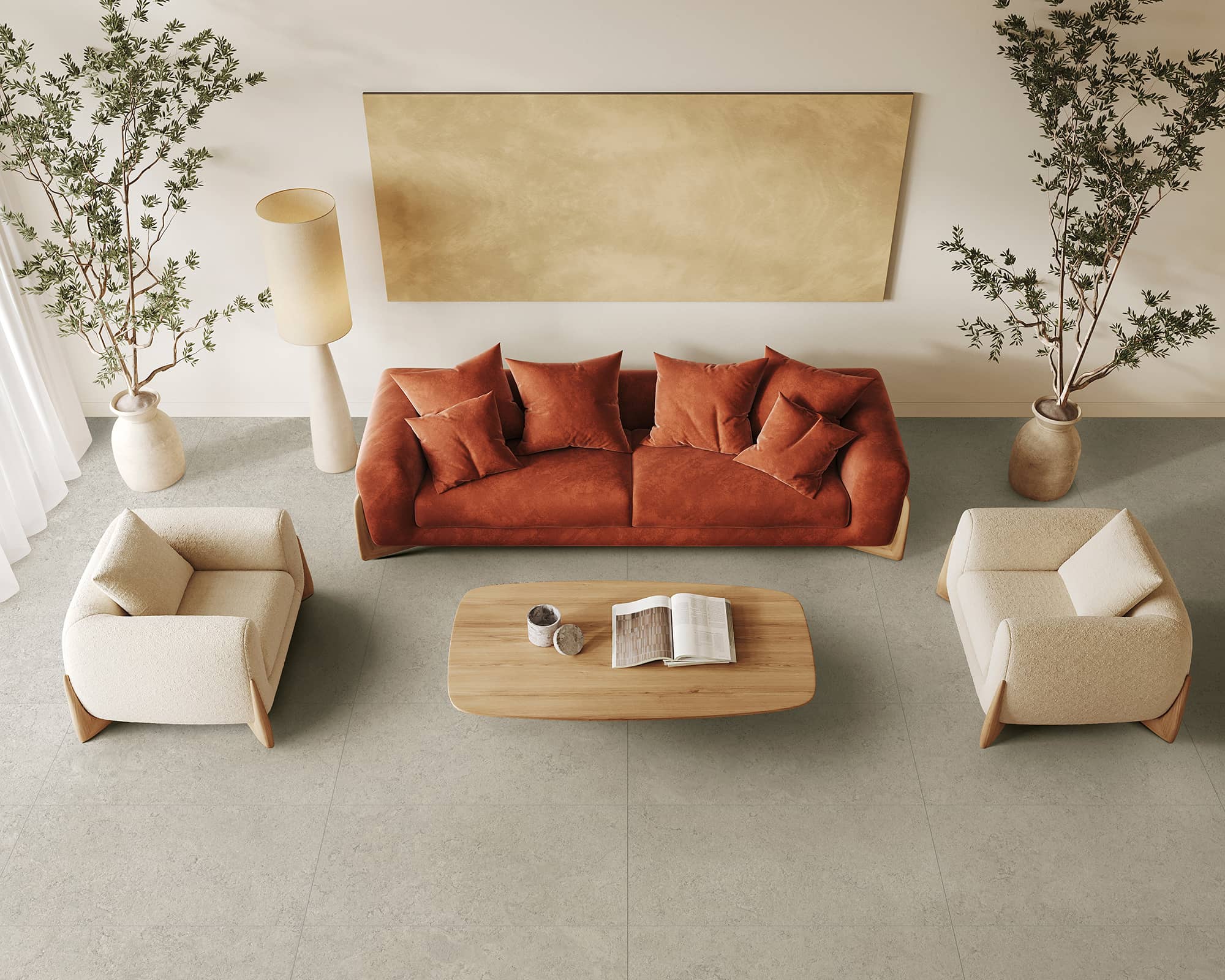
Moon
Stoneware floors depending on the material
The first thing to keep in mind when talking about stoneware floors is that there is not a single type, but rather, depending on its composition and manufacturing, we can distinguish between ceramic stoneware or porcelain stoneware. The first differentiation, therefore, lies in the material itself. Let's see what the characteristics of each of them are.
Ceramic stoneware floors
Ceramic or natural stoneware gives shape to the most traditional floors. It is made with natural clays (red and white) fired at high temperatures. Likewise, within ceramic tiles there are different types depending on the manufacturing process. Thus, glazed stoneware is one to which a layer of glaze is added that, in addition to improving its performance, provides texture and design. On the other hand, when the tile is manufactured by extrusion it gives rise to a rustic and rough-looking surface that is usually used in outdoor areas.
In either case, we are faced with a material that stands out for its low water absorption and its resistance. Likewise, it is easy to install and economical, which is why it has been one of the most traditionally used materials.
Porcelain stoneware floors
Porcelain stoneware floors, on the other hand, are made with more refined clays that give rise to a ceramic paste enriched with feldspars, which is why it has fewer impurities than ceramic stoneware. In addition, the cooking temperature is higher and for longer.
The result of a more complex manufacturing process is an extremely resistant surface with almost zero water absorption. It is, therefore, a versatile flooring that can be placed both indoors and outdoors and in wet areas.
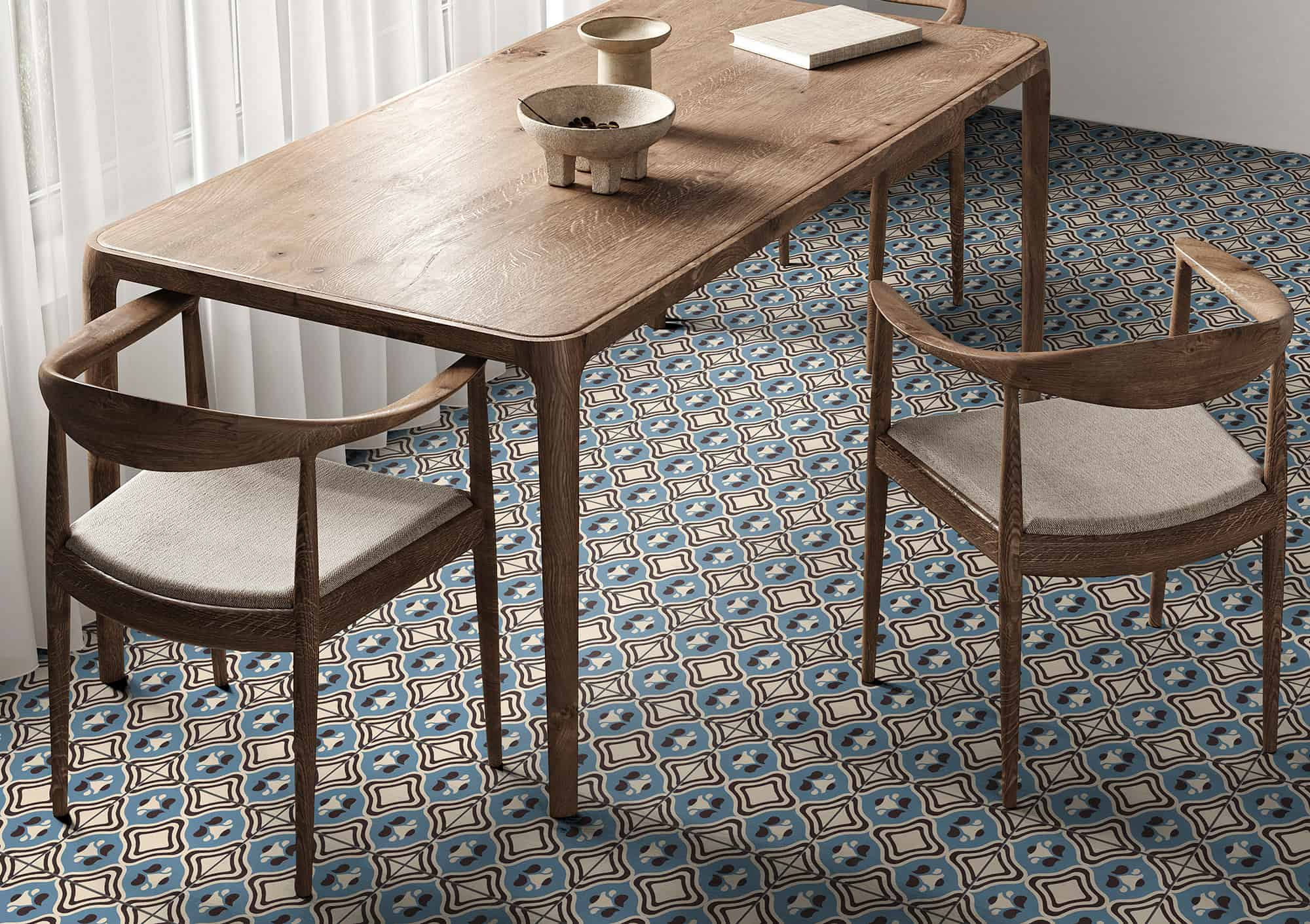
Danube
The advantages of porcelain floors
Both composition and manufacture give porcelain stoneware floors certain advantages over traditional ceramic floor tiles. Here are some of the most important ones.
- Porcelain stoneware is much more resistant to knocks and daily use. It is, therefore, the ideal flooring for high traffic areas and large projects.
- It is a non-porous surface and therefore does not absorb water or liquids. This characteristic makes it an ideal material for spaces such as kitchens and bathrooms.
- Thanks to its greater resistance and variety of finishes, porcelain floor tiles can be installed in any type of space and project.
- Ease of cleaning and maintenance. As a non-porous material, porcelain does not absorb dirt, so daily cleaning and maintenance are also less costly.
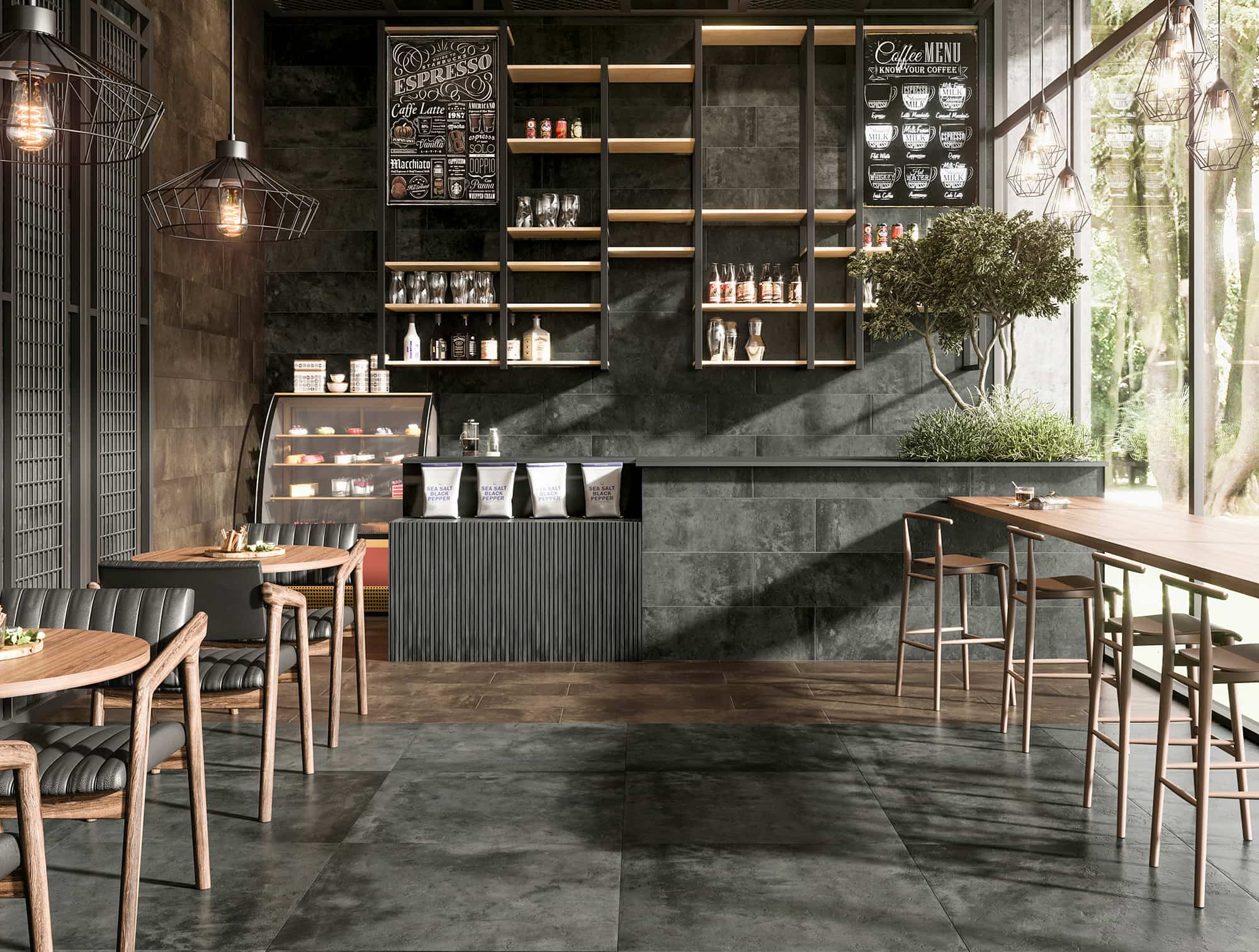
Mud
Types of porcelain stoneware floor depending on the finish
As we have seen, porcelain stoneware floors offer important advantages from a technical point of view. However, when selecting the ideal floor covering, other factors must be taken into account in addition to the material. This is the case of the finish, which determines the choice of floor depending on the place where it is installed.
Matt-finished floors
Porcelain floors with a matt finish are characterised by the absence of shine and reflections, resulting in a more natural surface with a more modern personality. This is the usual finish for porcelain tiles such as imitation wood, although it can also reproduce the natural look of marble and other stones. Matt porcelain floors offer greater slip resistance than other finishes such as glossy, which is why they are often used in bathrooms and kitchens.
Lappato finish flooring
The lappato or semi-polished finish gives porcelain tile a characteristic silky appearance, as it has a matt and slightly glossy finish at the same time. This is due to the fact that the surface of the tile is not completely polished. This type of flooring is commonly used in interior spaces and is an ideal finish for porcelain tiles that imitate textures such as natural stone or oxidised metals. Aparici's collections such as Sutton or Grunge show the decorative power of lapado flooring.
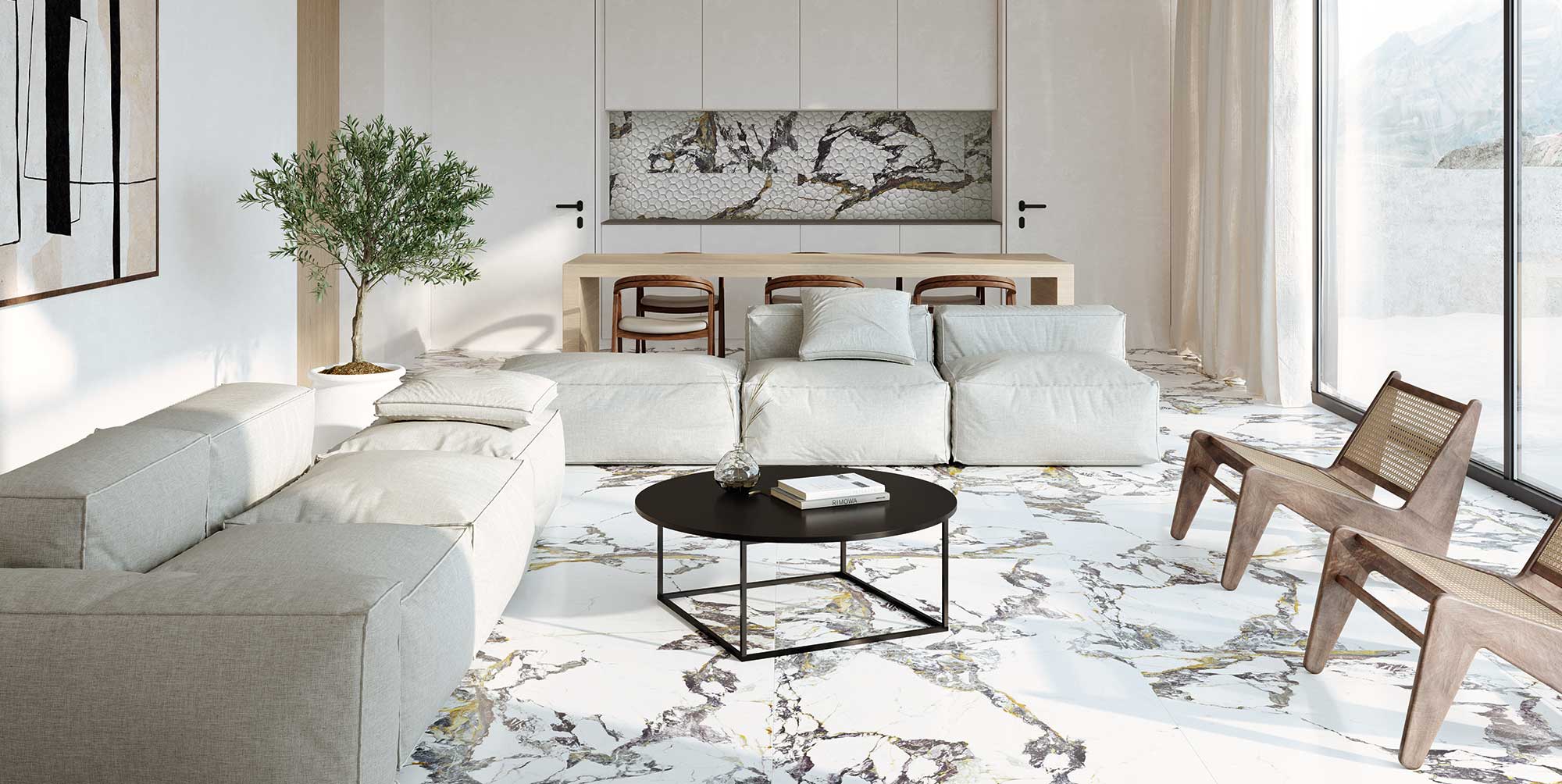
Sutton
Floors with a polished finish
Polished floors do not have any type of glaze, but their appearance is due to the polishing of the surface layer of the tile. The result is a more natural shine to the eye and more durable, while maintaining the advantages offered by porcelain stoneware. Polished porcelain floors are installed in interior areas, especially in living rooms, hallways or bedrooms, as they have less slip resistance than a matt finish. It is the ideal finish to reproduce the natural shine of the most expressive natural stones.
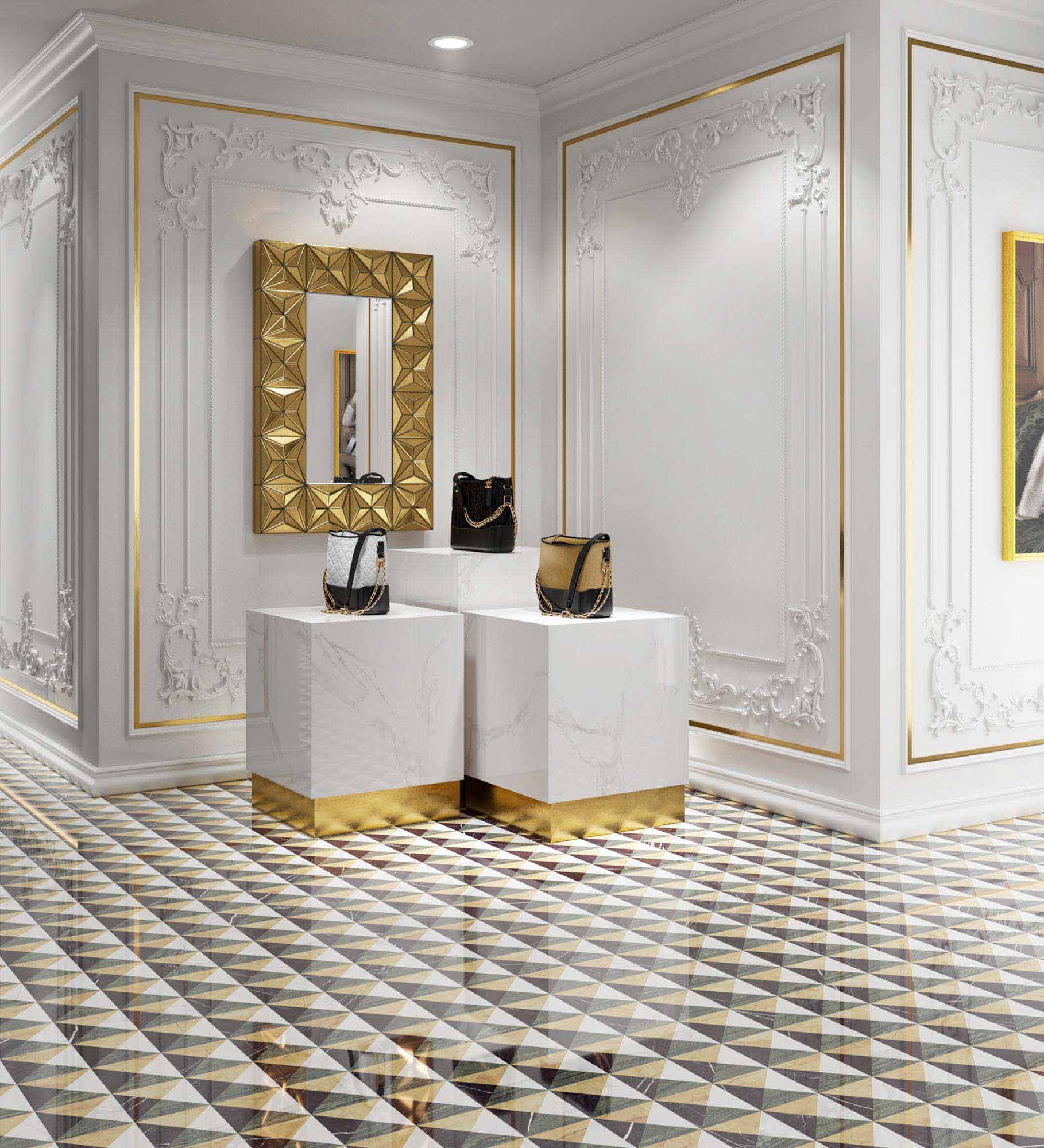
Regio
Anti-slip flooring
Non-slip floor tiles are characterised by their smooth, homogeneous and slightly rough texture. This prevents slipping without altering the appearance of the tile. It is the ideal option in those spaces that require extra safety against slips and possible falls, such as the bathroom or kitchen. Likewise, they are commonly used in all types of outdoor spaces, as they resist sudden changes in temperature like few others.
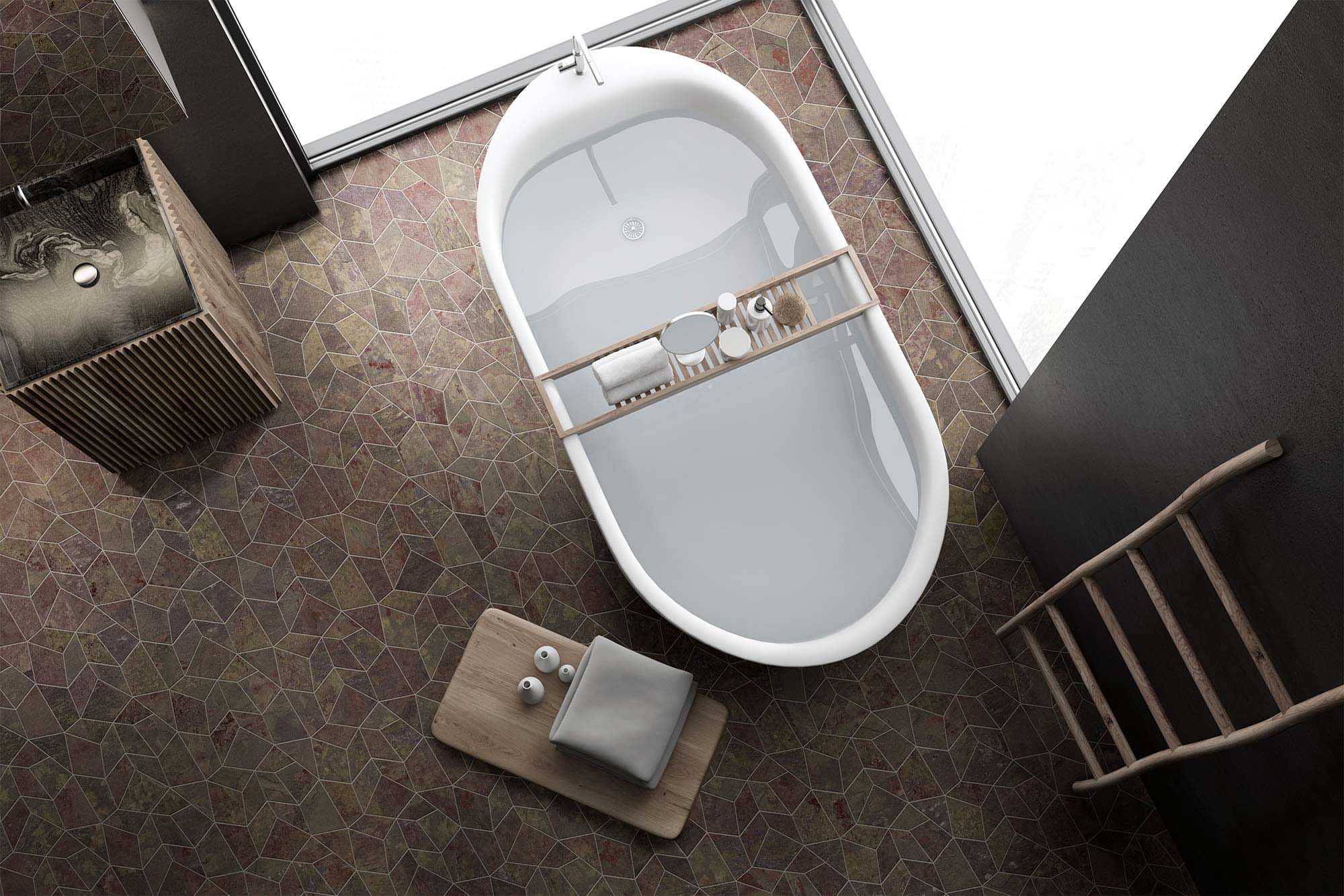
Slate
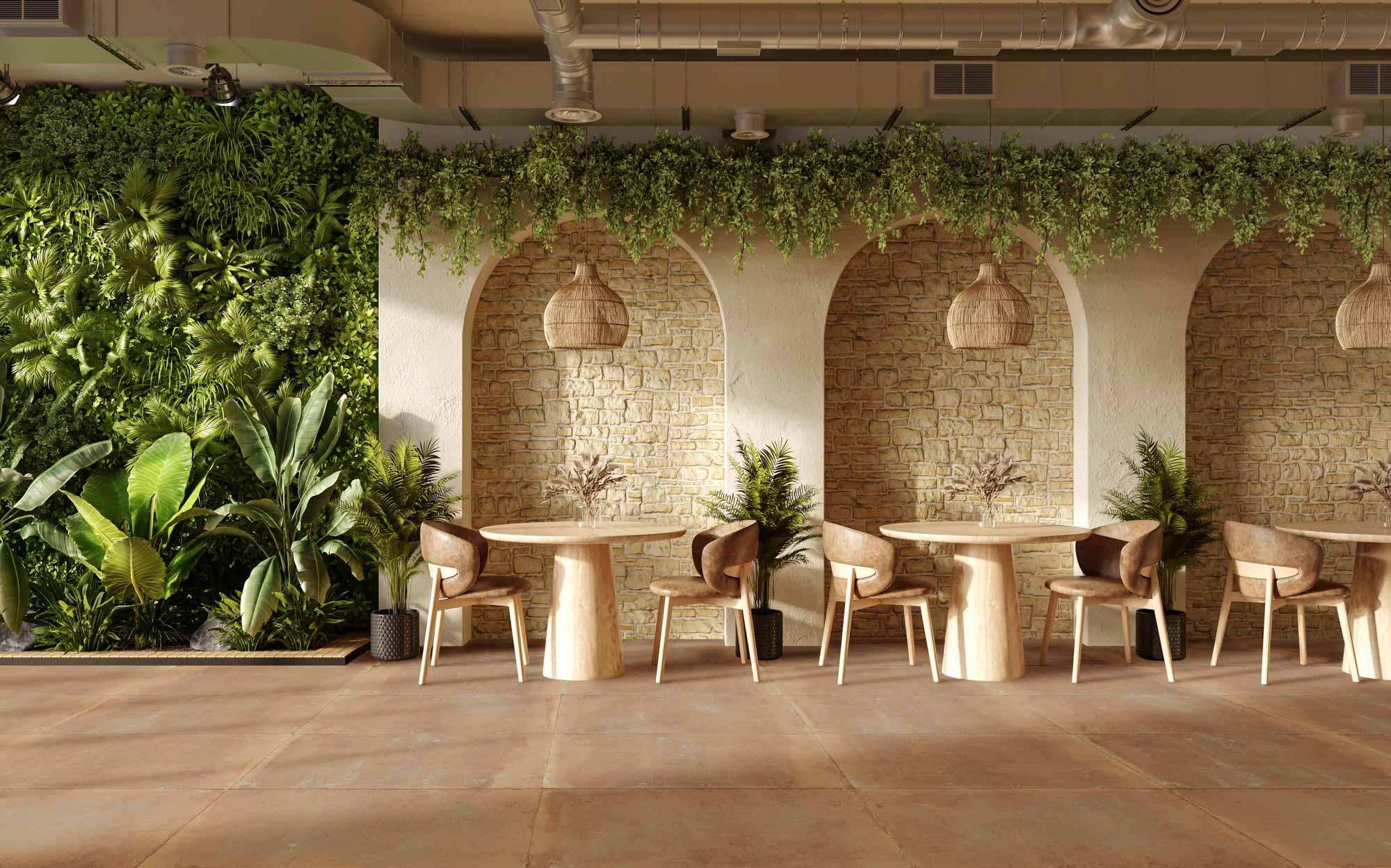
Cotto
Porcelain stoneware floors: one material many designs
Once you have chosen the type of stoneware floor and the finish that suits you best, it's time to focus on the design. Porcelain floors offer an almost infinite variety of looks, although these are some of the most popular.
- Imitation wood floors: Ceramic or porcelain floors imitating wood are not only capable of reproducing the texture and relief of the natural material, but also of improving its technical performance and extending the chromatic range.
- Marble-look tiles: marble-effect flooring or other natural stones are also a safe bet in today's interior design. The Aparici catalogue is a good example of the variety of designs and colours of marble-look porcelain tiles.
- Rustic floors: Porcelain stoneware can enhance the charm of clay imitation floors thanks to its technical properties while updating the rustic style with more contemporary designs.
- Decorative floors: Porcelain floor tiles also stand out for their personality. Aparici's catalogue of decorative tiles includes pre-cut tiles, hydraulic tiles, mosaic tiles... Imagination to the max!
- The personality of concrete: from the most decorative to the most sober. Concrete porcelain stoneware floors are becoming increasingly popular thanks to their neutral tones and cosmopolitan personality.
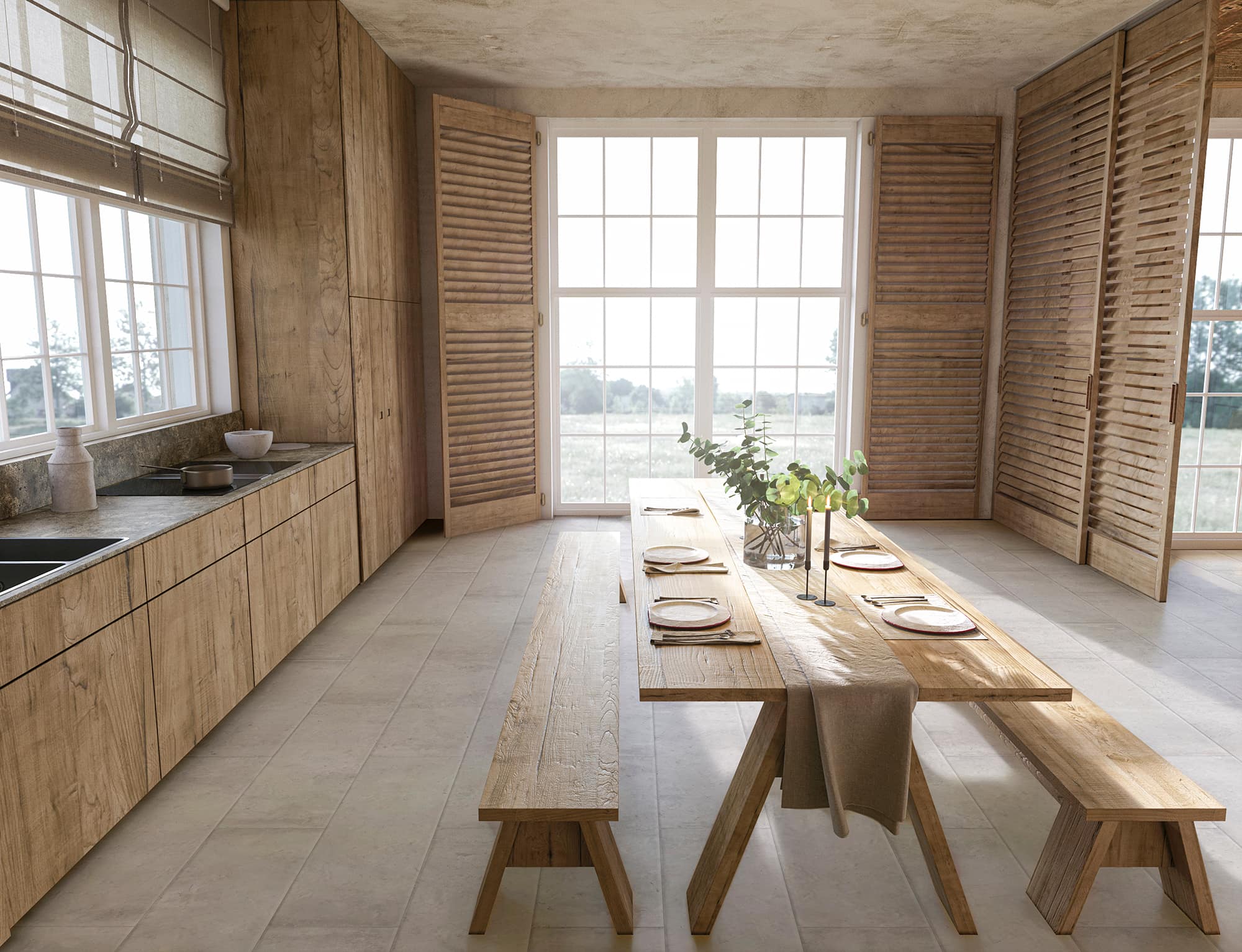
Mud
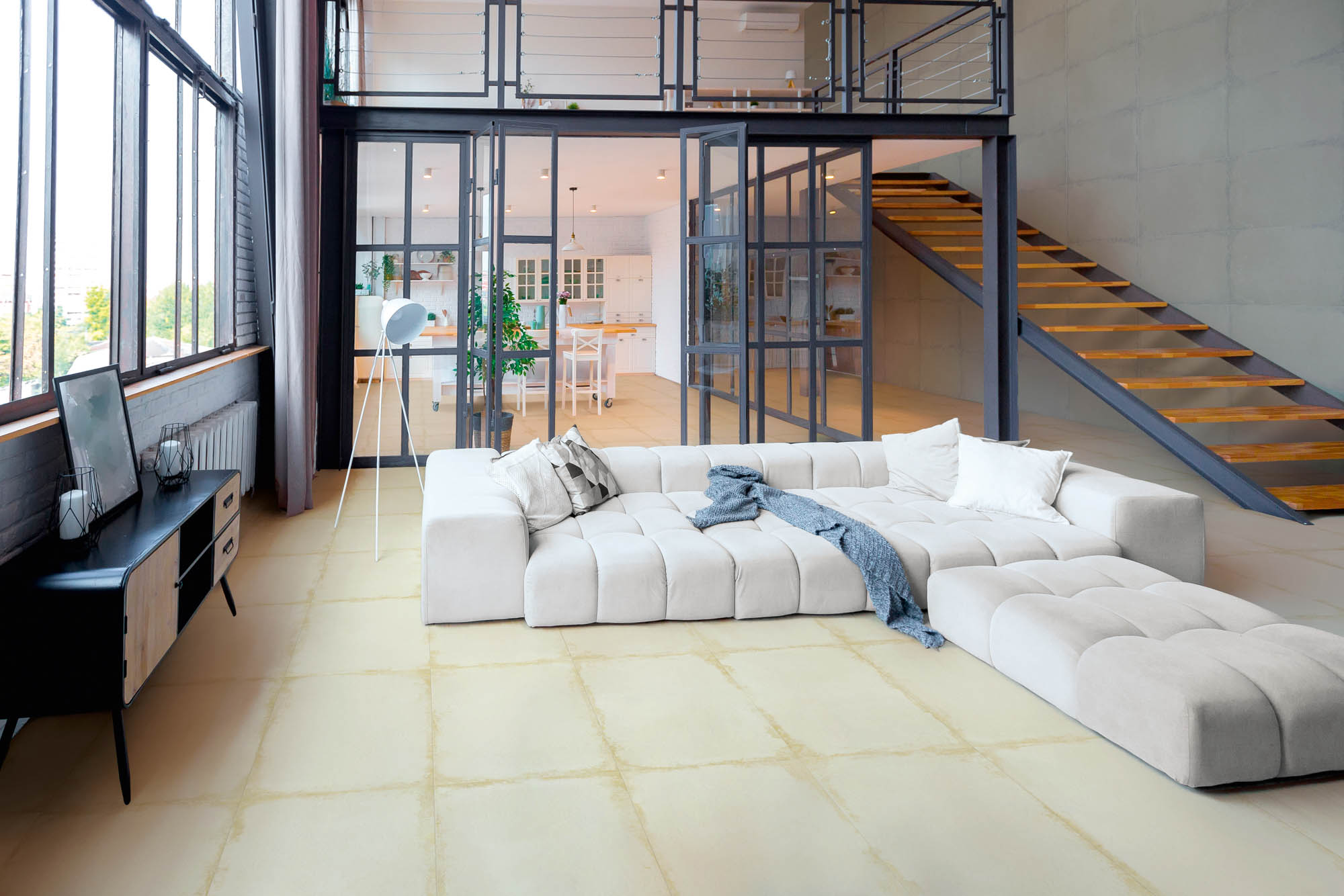
Fusion
Choose the best stoneware floor depending on your project.
In short, the choice of the type of stoneware floor depends on both the project and the room in which it will be installed. As we have seen, porcelain stoneware offers more advantages from a technical point of view and is the most suitable material for contract projects and for the most demanding spaces: high-traffic areas, wet areas, terraces and outdoor patios...
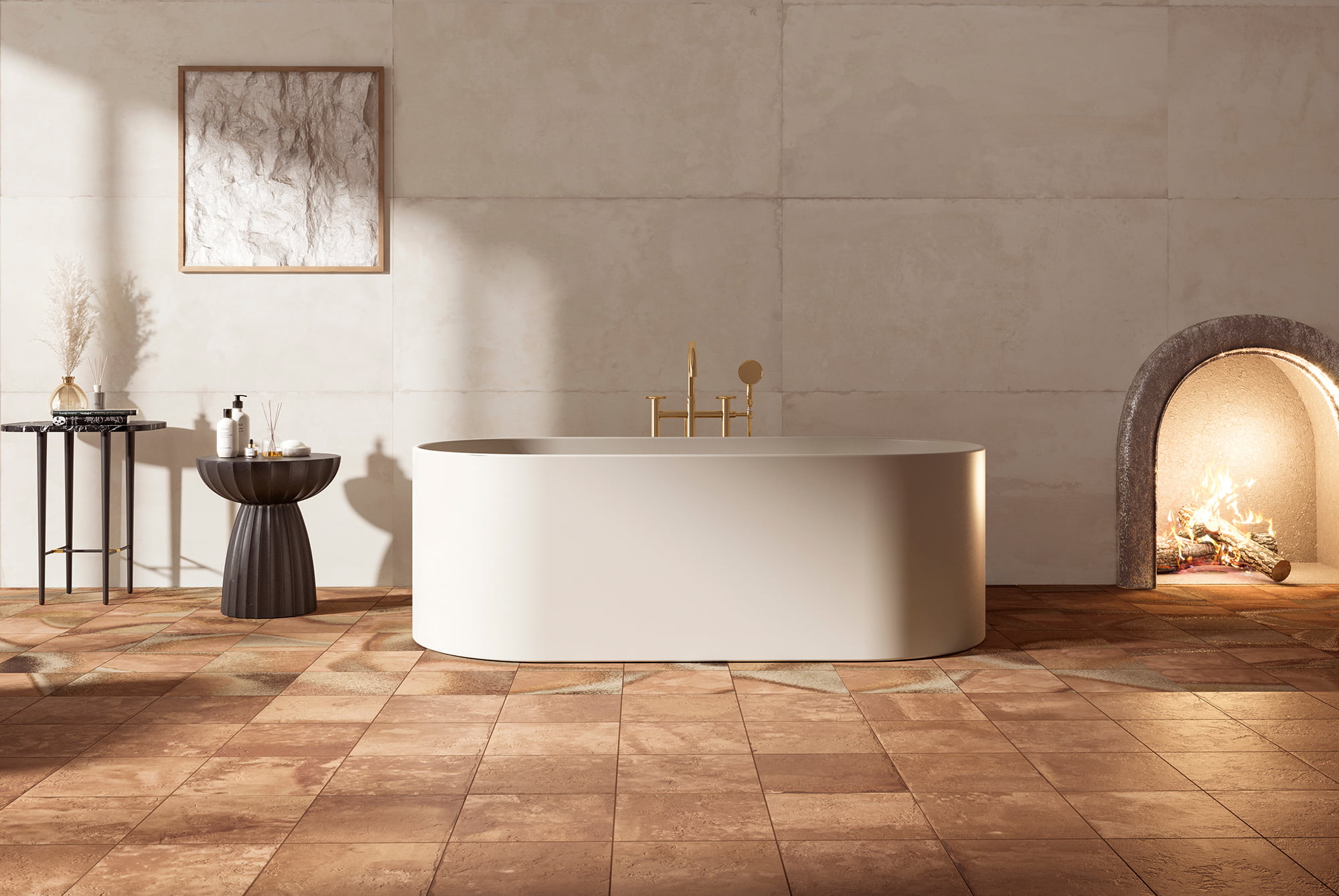
Terracota
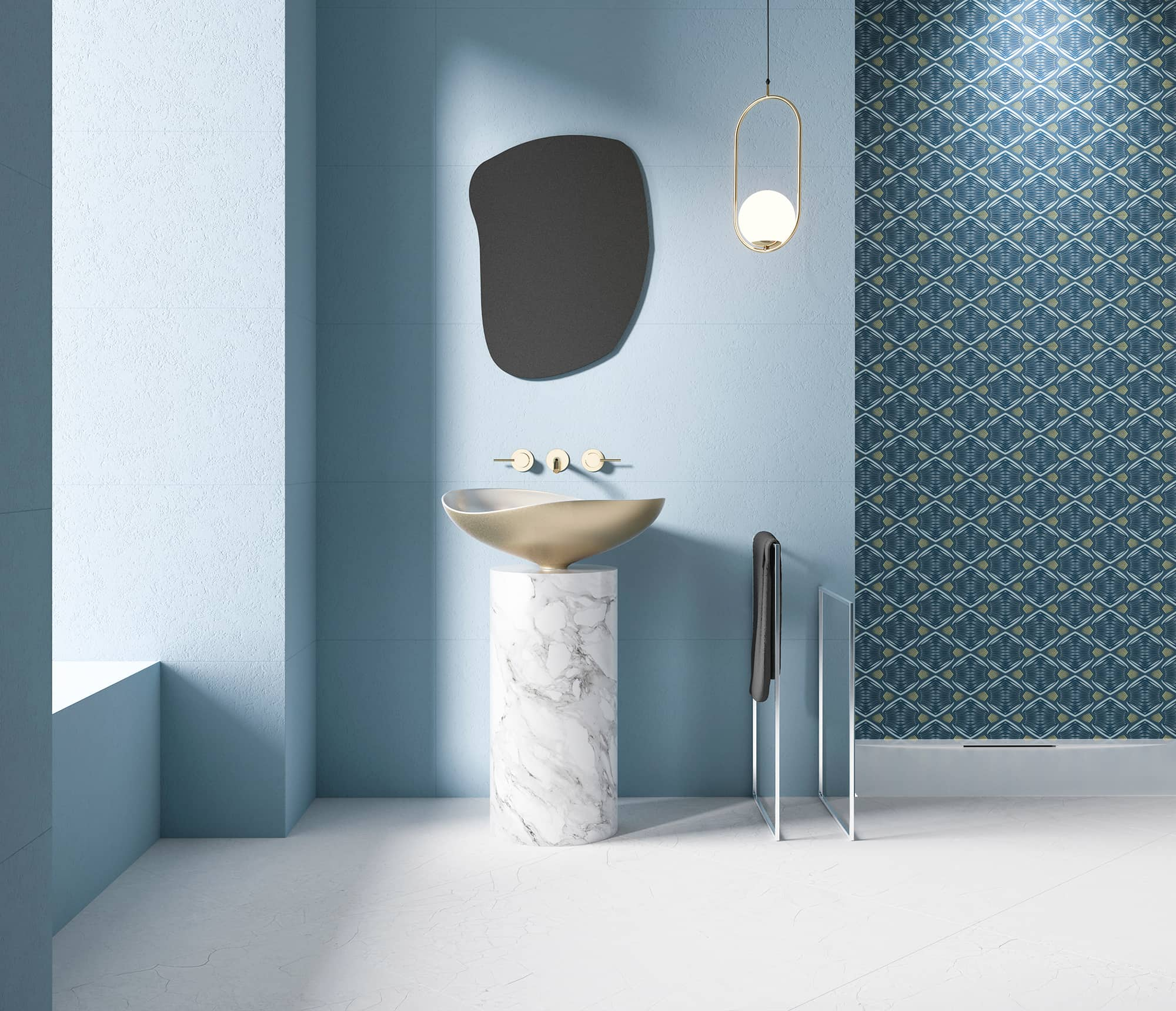
Spring
If you have any questions about the type of stoneware floor and would like professional advice, please do not hesitate to contact us, we will be happy to help you!

